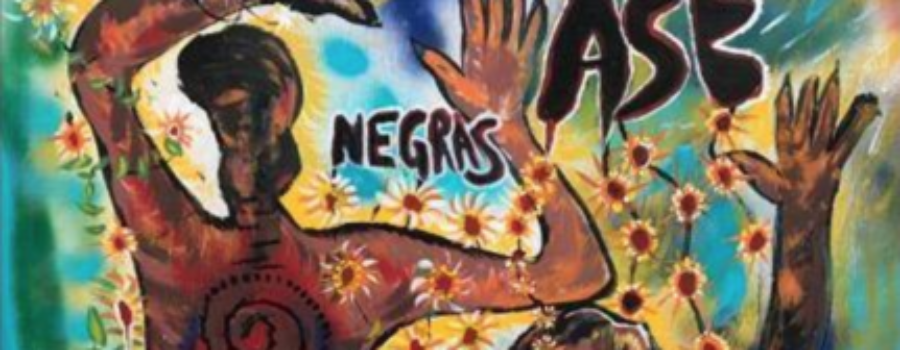Reflection made by Franklin Perozo after participating in Dialogue #4: Absolutely Black, Celebrating the Lives and Struggles of Black Women. Dialogue that was part of the first series of conversations “MORE Conversations for MORE Pride”, on August 1, 2020.
Spanish below
English translation: Max Sizemore
I, owner of my jaragual, feel myself
singing my song to the wind,
a patriarchal chief, watching my dog guard,
my treasure and my wife, how immense.
Chorus: How immense, how immense,
Being the owner of the farm and the wife
Lyrics: Felipe Rosario Goyco
Voice: Ismael Rivera
Album: Total Eclipse (1975)
The conversation gave way to the question: what is the place of men in this discussion? Element that generated the following reflection. For many of us, heterosexual, Latin American, Afro-descendant men, the patriarchal system has functioned as a means of self-deception so complex that it is very difficult to recognize how it affects us, much less how we are participants in sustaining, by action or omission, a unjust and violent model of society towards women, this makes it even more difficult to question the place we occupy in the structure of social privileges that sustain the differences between genders. It is important to recognize that the patriarchal system also oppresses men, but we cannot lose sight of the fact that it kills women on a daily basis.
Enormous are the gaps that still separate, in terms of equity and gender justice, the lives of women and men today. Despite the historical struggles that women have undertaken against the patriarchal system, and that there is still much to transform, definitely, Western society is not the same since they raised their voices in protest against the inequalities that oppress them. Dialogue 4 of the Seattle Afro-Latin Movement (MÁS), Absolutely Black: Celebrating the lives and struggles of Black Women, allowed us to talk and think as a group about how violence against women is a phenomenon that has historically hurt us and also discuss its persistence and close link to racial discrimination. Many women have it clear, the objective is to confront the patriarchal, sexist, classist, racist, homophobic system, which deepens inequalities in the bowels of society and harms us all and, although it is not clearly seen, also everyone.
We build ourselves as men from the ideals of hegemonic, privileged and conservative white masculinity that separates and defines genders from a relationship of inequality with women, who is built from the desires of men for their control, which idealizes, for example, the property, wealth, land and women, as Maelo sings, and that shows us the traditional role of men in society.
The discourses and practices of hegemonic and traditionalist masculinity have built man from certain social mandates that separate him from his reality and detach him from his environment. Being a provider, successful, violent, proud, selfish, are examples of these mandates, which build imaginaries and modes of relationships that prevent the establishment of equitable and fair forms of coexistence. This condition of being masculine requires, among other things, not to be afraid of anything and much less to show feelings not associated with violence, since doing so is a symptom of weakness insofar as this is found in the sphere of the feminine. So, being a man for this canon is built on denial and contempt for everything that the patriarchal system has defined as belonging to women, which is manifested in the serious misogyny that machismo preaches.
The patriarchal system creates and sustains certain “obligations” assigned to gender, in this sense women have, for example, a central role in caring for the species, the home, the family and men work outside the home, This has caused us to almost completely disassociate ourselves from the activities that our families need for their growth, reaching the point that, in many cases, the place of the man in the family is a great void. These unequal power relations are inscribed in our daily lives so deeply that they lead us to think that responsible parenthood, the care of children, equity in family responsibilities and in life as a couple are not considered part of masculinity.
These inequalities are based on various forms of domination towards women and sustain the privileges assigned to the masculine gender, they have made possible the development of men in many other aspects of life, to the detriment of the possibilities of self-realization of women. We compete with them in all spaces, despite the fact that they are at a disadvantage because they have assumed, due to the absence of men, determining roles in supporting the family. The so-called double day of women.
As long as we heterosexual men do not question our place of privilege by initiating, in the various spheres of our daily life, we renounce and initiate the necessary transformations, that is, we work to tear down the ideological and material bases that feed the patriarchal system, diverse ways of being masculine, in relation to the realities and transformations that our societies live, for this reason it is of the utmost importance to recognize how men learn to become men, to transform the ideological bases that found masculinity and that are linked to the patriarchal system.
Masculinities against hegemony, are self-constructed daily from the recognition and transformation of the privileges that harm the lives of women, transforming masculinity is an exercise in self-criticism of our gender privileges, to commit ourselves and take responsibility for the transformation of our lives and that of our families, because depatriarchalizing us, could not be summed up to a man being able to wear pink clothes, be able to express his feelings, or cry in public without being embarrassed to be seen strangely, for example, it implies that there are men who abandon their gender privileges and become more actively involved in the transformation of unequal power relations, in favor of the construction of equitable gender relations, the objective, then, is to face the monster that lives in us, to break with all forms of relations patriarchal, sexist, that we support and defend. If we are not part of the solution, to a large extent, we are part of the problem.
These reflections are a contribution to promote changes in favor of a fair and equitable society, advocates for the creation of more spaces for reflection and dialogue that break with the prejudices that have been built around masculinity, with the aim of transforming stereotypes. that associate machismo with masculinity. The invitation, then, is to begin the complex process of resignifying masculinity from new horizons. And it is that by questioning nothing more and nothing less than “El Sonero Mayor”, the man of “Caras Lindas”, we are questioning the founding imaginary of the masculine pattern through two essential elements of the Afro-Latin: the community and the family. , everyday life and intimacy, in short, the party, the sauce. As this musical reference, for those of us who recognize the political value that it has in the vindication of blackness, it must at the same time be a way to dismantle the ideology of masculinity, the one that permeates, penetrates, normalizes and ends up perpetuating a society unequal, unhappy and making man a profoundly lonely and “Misunderstood” being.















